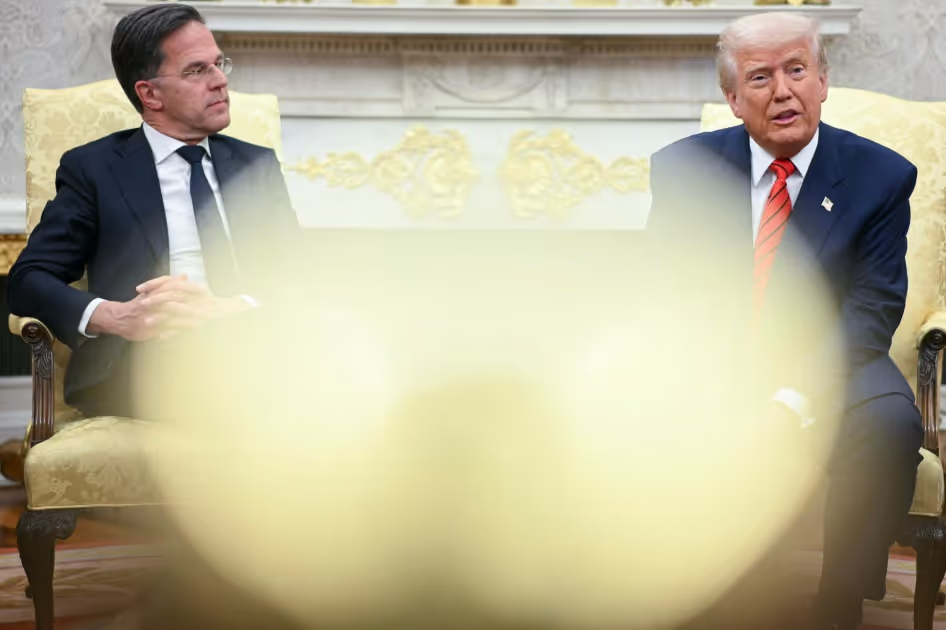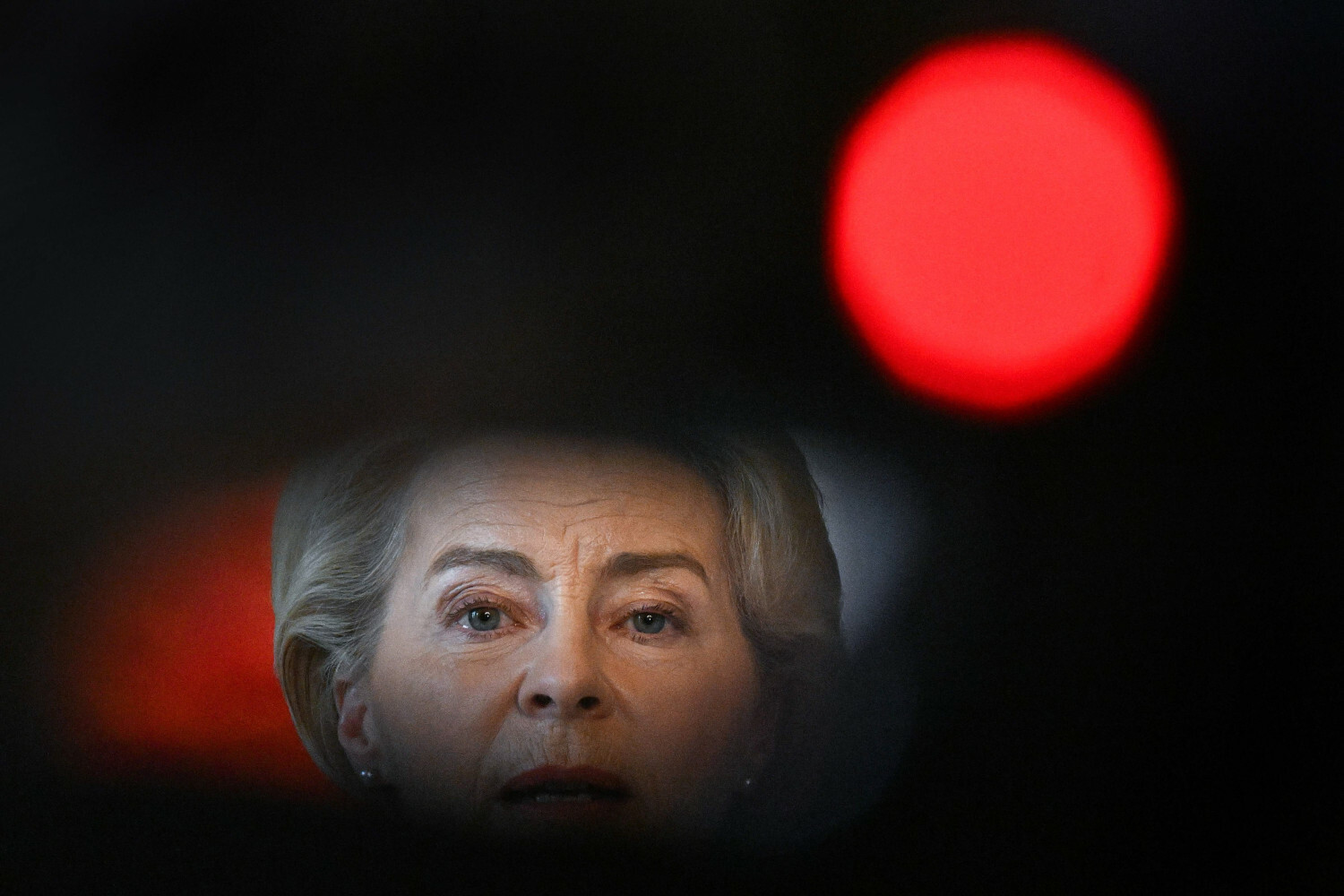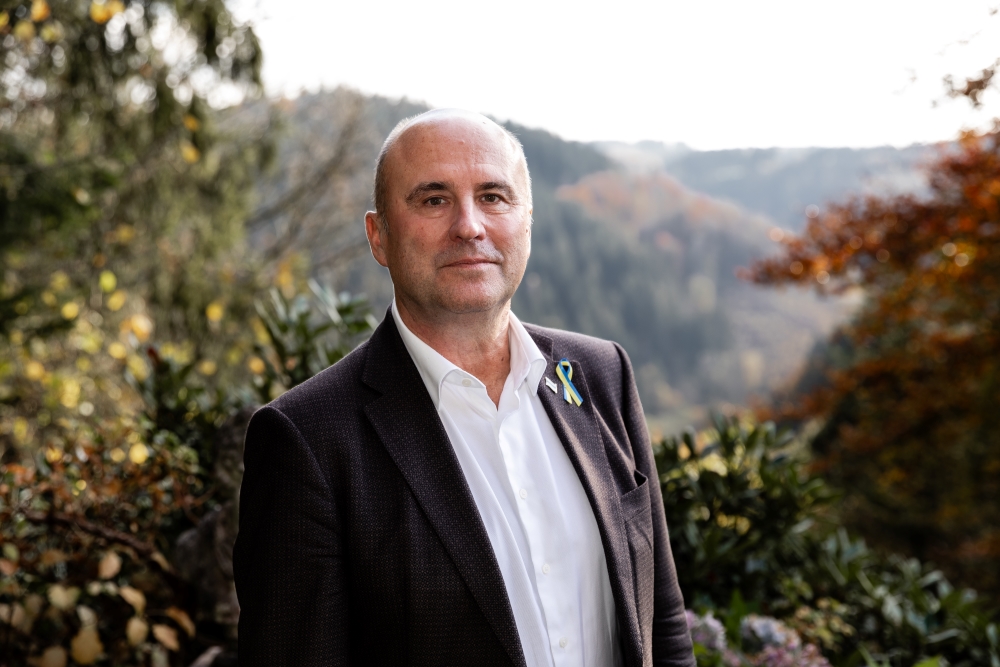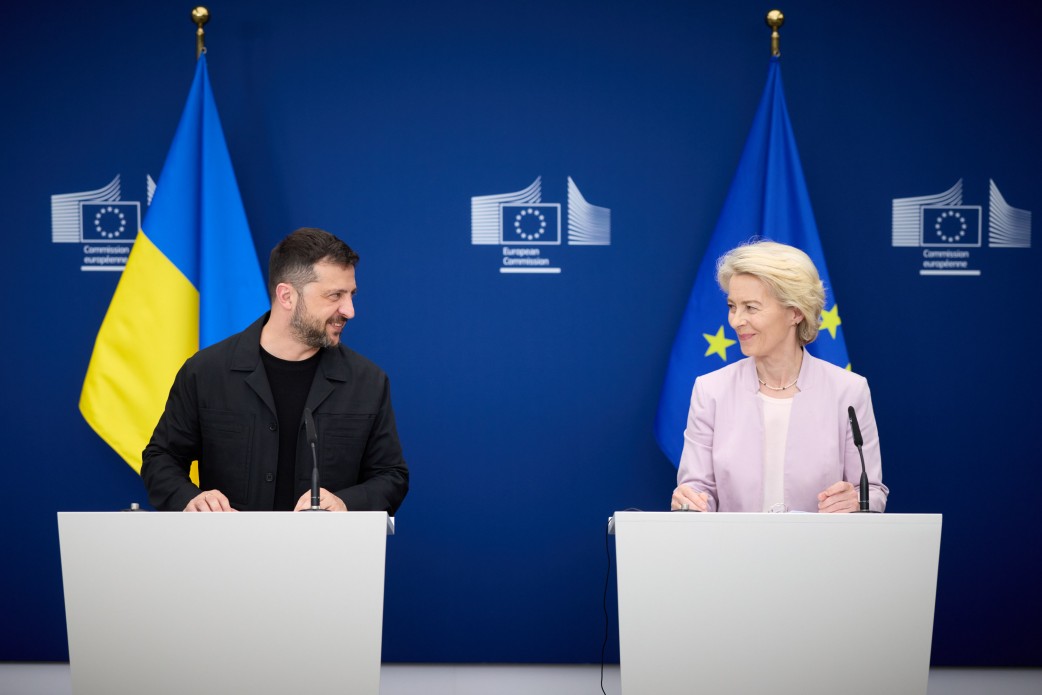Support Sestry
Even a small contribution to real journalism helps strengthen democracy. Join us, and together we will tell the world the inspiring stories of people fighting for freedom!
The West had all the tools to foresee Russia's war against Ukraine - and chose to ignore them. Even before 2014, analysis reached NATO's highest offices: the annexation of Crimea, the threat to Mariupol, the Russian Federation's dominance in the Black Sea. The forecasts were accurate, but most member states opted for the illusion of partnership with the Kremlin.
Are changes still possible? What is required to achieve them? And can NATO remain an effective security alliance in a new era of threats? These and other questions were addressed in an interview with Sestry by Dr Stefanie Babst - one of the most influential security strategists in Europe, who worked at NATO for over 20 years, including as Head of the Strategic Foresight Team. Today, she is an independent analyst, the author of a book on the West's «blind spots» in its strategy toward Russia, and an active participant in international discussions on war, peace and security.
Ukraine, Russia and the strategic miscalculations of the West
Maryna Stepanenko: You led NATO's Strategic Foresight Team. How do you assess the West's ability to foresee Russia's full-scale invasion of Ukraine? Were there signals that were simply not heard, or perhaps deliberately ignored?
Stefanie Babst: There were many warnings that went unheeded. Allow me to explain. In international relations, it is crucial to accurately assess the mindset, capabilities and intentions of another actor. NATO failed to do this with Russia. As the Head of Strategic Foresight at the Alliance, I issued the first serious warning in 2013 - a few months before the annexation of Crimea. I presented an analysis outlining Russia's malicious intentions and its military preparations against Ukraine.
It was reviewed by the Secretary General and discussed with member states, but no action was taken
Some countries - the Baltic States and Poland - took the analysis seriously. Others - notably Germany, the United States and the United Kingdom - preferred to maintain the NATO-Russia partnership. From 2014 onwards, we intensified our analysis, forecasting actions such as the seizure of Mariupol, dominance in the Black Sea and the use of Donbas as a staging ground. These forecasts were presented at the highest levels, including the NATO Council, but were ultimately dismissed.
In 2015 and 2016, we broadened our focus to include China and its ties with Russia, offering future scenarios and forecasting so-called «black swans» - high-impact events that are hard to predict, seem unlikely but could have serious consequences if they occur. Again, many perceived this only as «intellectual exercises». Thus, NATO possessed the tools of foresight - and chose to ignore them. And that comes at a very high cost.
In your work, you call for a review of the West's strategy toward Russia. In your view, what «blind spots» remain in Western approaches - particularly regarding support for Ukraine?
Three years ago, I called for a powerful, multifaceted deterrence strategy to help Ukraine not just freeze the war but win it. I invoked George Kennan's Cold War approach, urging the use of all available instruments - economic, diplomatic and military - to push Russia out of Ukraine. But apart from some Baltic and Northern European countries, no one took this seriously.
NATO and the EU still lack a defined end goal. If Ukraine's victory were the objective, a corresponding strategy would have been developed
Instead, Western leaders underestimated Ukraine's resilience and failed to act decisively even after Russia crossed countless red lines. President Biden, despite his commitment to Ukraine, framed his approach around what the United States would not do: we will not provoke Russia, we will not give Ukrainians long-range weapons, we will not do this or that. This is not a strategy. Now, with Trump’s return, many European governments are passively hoping for a US-Russian agreement that merely freezes the war - something I believe is dangerous both for Ukraine and Europe.
My main criticism is the lack of political will in the West. Too many still see this as Russia's war against Ukrainians. But it is our war too
Stefanie, why do you think Europe failed to prepare effectively for Trump’s presidency?
Planning within NATO and European governments is often difficult, as politicians typically focus on short-term goals, usually only a month ahead. In times of emergency, particularly due to Washington's unpredictability, Europe must abandon crisis management mode and stop reacting to every event, such as a new tweet.
Europe must be firm with the United States, clearly communicating that their actions - including threats to countries like Canada and Denmark, withholding intelligence from Ukraine and halting cyber operations against Russia - are unacceptable. These decisions had deadly consequences, and member states should not be afraid to hold the United States accountable for violating the fundamental principles of the Washington Treaty.
Mark Rutte, the NATO Secretary General, recently visited Florida to meet President Trump, hoping to impress him with defence spending figures. He praised Trump’s leadership and even claimed that Trump had «broken the deadlock» in relations with Russia. However, this is detached from the reality of ongoing Russian attacks.
If the NATO Secretary General lacks a clear message, the best approach is silence, focusing on supporting member states and protecting them from any threat. We do not have time for empty words and political games.
Europeans must remain immune to American political theatre, focusing on strengthening defence capability and supporting Ukraine’s defence industry so it can resist Russian aggression
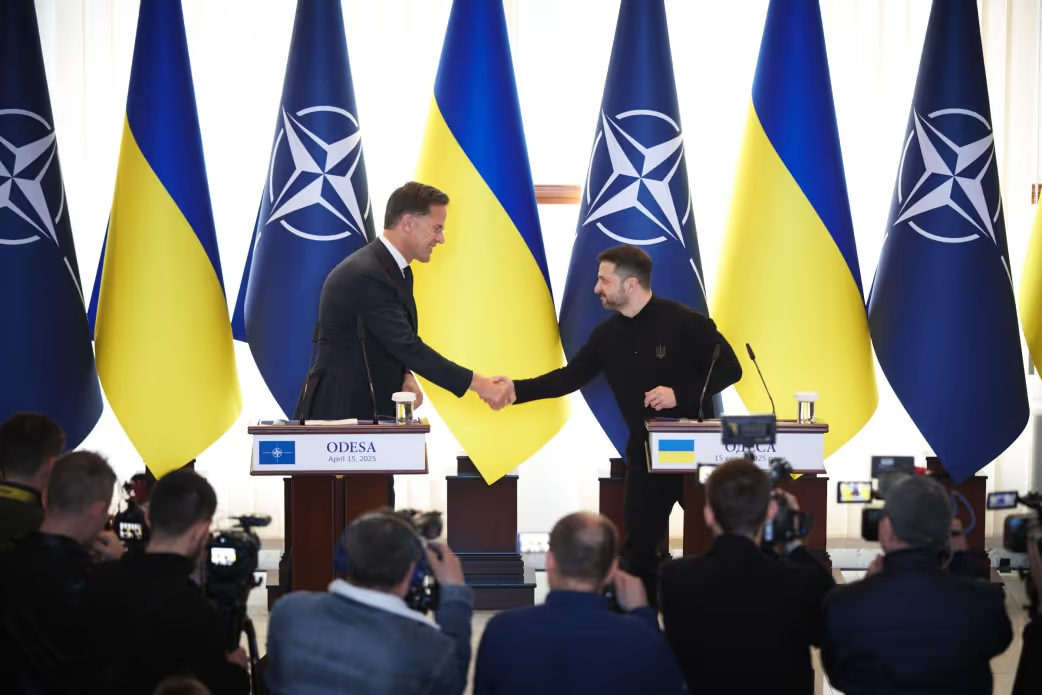
Migration and war
Germany is no longer the EU leader in asylum requests from South American and Middle Eastern refugees. At the same time, in the first quarter of 2025, applications from Ukrainians rose by 84 per cent. What does this indicate?
It is entirely understandable that many Ukrainians have chosen to leave their country for personal and professional reasons - this is natural, and no one should be blamed for it. But this migration has political consequences in Germany, particularly when far-right parties exploit it by portraying Ukrainian refugees as a burden on the social system, regardless of their skills or motivation. These sentiments are especially strong in eastern Germany, where parties like AfD and certain left-wing populist movements have gained support.
What concerns me is the lack of strong counteraction from the federal government in Berlin - clearer messaging and political leadership are needed
If more Ukrainians arrive, I hope the next government will take a positive stance, recognising that many of them can significantly contribute to the German workforce. This would mean reducing bureaucracy, accelerating integration and facilitating their employment. Whether this happens remains to be seen.
Continuing on this topic, in recent weeks, some districts in Germany have publicly declared that they can no longer accommodate Ukrainian refugees due to overburdened social systems. How do you assess these sentiments?
It is true that local communities across Germany still face difficulties in accommodating refugees - an issue that arose after Chancellor Merkel’s decision to open the borders, leading to a large influx of refugees from Syria, Afghanistan and other countries. Many municipalities remain overwhelmed by demands for housing, language training and integration support. However, Ukrainian refugees do not pose the same challenges.
Ukrainians generally integrate well, bring strong skills and education and do not contribute to social tensions
In contrast, some refugees from the Middle East struggle to adapt to liberal democratic norms, which fuels far-right narratives, particularly in eastern Germany. Parties like AfD and figures such as Sahra Wagenknecht exploit this, promoting anti-Ukrainian, pro-concession rhetoric that ignores the reality of Russian occupation.
Unfortunately, mainstream democratic parties are not doing enough to push them back. With growing support from American right-wing populists, such as those connected to Trump or Musk, this polarisation may deepen further, posing a serious threat to democratic cohesion in Europe.
Europe on the brink of war
Amid full-scale war in Ukraine, initiatives have emerged in Poland and Germany to prepare schoolchildren for emergencies. Does this indicate a deeper shift in Europe's security culture, where defence is no longer solely the army's responsibility, but that of the entire society?
Although some defence-related courses have begun in Germany, they remain insufficient, and the wider public remains largely unprepared - both mentally and physically - to play a defensive role.
Serious debates are now underway about reinstating military conscription, but surveys show that two-thirds of people aged 20 to 30 would refuse to serve, with many saying they would rather emigrate than defend the country.
This reflects a deeper issue: decades of political messaging have conditioned Germans to believe they live in peace, surrounded by allies, and need not prepare for conflict
As a result, Germany also lacks bunkers for emergencies, civil defence training and basic resilience measures for the population. Changing this mindset will require strong political leadership. Without it, the Bundeswehr will remain under-equipped and unable to contribute significantly to efforts such as a potential coalition in Ukraine.
We see civil defence becoming part of public policy, from educating children to testing alarm systems. Is Europe beginning to think seriously about its own resilience in the face of potential escalation beyond Ukraine?
Undoubtedly. Some countries, such as Finland, Sweden, Poland and the Baltic States, have prioritised both military capability and societal resilience in recent years. In cities such as Riga and Warsaw, the Russian threat is well understood. However, countries like Germany, Belgium, Portugal, France and others still view Russia’s war against Ukraine as a regional issue.
Fortunately, leaders such as Kaja Kallas are advocating for a long-term strategy against Russia. Since the start of Russia’s full-scale invasion, I have argued that we must prepare for a protracted conflict, as long as Putin’s regime remains in power, Russia will continue to pose a threat to Ukraine and the whole of Europe.
Strategic vision
Given your views on NATO's evolution and the need for a new coalition, potentially the so-called «coalition of the willing», how do you envisage its structure? What strategic or institutional frameworks will be important to effectively counter Russian aggression, considering internal challenges within NATO, particularly due to the influence of populist leaders, including Trump?
During my time at NATO, I was proud of my team’s ability to anticipate challenges before they emerged, especially regarding NATO’s enlargement. I was actively involved in the admission of new members, including the Baltic States, Slovenia and Slovakia.
One of the moments I had hoped to witness was seeing Ukraine’s flag at NATO headquarters, but I no longer believe that is a realistic goal
Instead, I believe Ukraine should focus on building a new coalition with like-minded countries, rather than pursuing NATO membership. The Alliance, particularly under the influence of destructive politics, is becoming increasingly divided.
If I were advising President Zelensky, I would recommend not wasting energy on NATO accession but rather focusing on strengthening a broader, more flexible alliance to counter Russian aggression. This would allow us to move beyond the status quo and prepare for the future.
Considering the current dynamics within NATO, how long do you think the Alliance can maintain its current structure before significant changes become inevitable? Do you have a timeframe in mind?
When President Trump was elected, I predicted he would undermine the rules-based order, and we are already seeing significant damage done to NATO, especially concerning the US commitments. European countries have started discussing enhancing the European pillar within NATO, planning to prepare for a potential US withdrawal within five to ten years. However, I believe that timeframe is overly optimistic - we may have only five to ten months before we witness new disruptions.

Looking back, it is clear NATO missed the opportunity to prepare for these challenges. In 2016, I prepared a document for the Secretary General outlining potential harm Trump could cause, but it was dismissed at the time. The issues I raised remain relevant today, and NATO's bureaucracy is too risk-averse to plan for unforeseen scenarios.
If the Alliance fails to act, it risks becoming a reactive organisation that merely responds to Trump’s tweets instead of proactively working toward the future
I hope that countries such as France, the United Kingdom and Northern European states will cooperate with Ukraine to create a new joint alliance capable of better confronting future challenges.
Cover photo: MANDEL NGAN/AFP/East News
This project is co-financed by the Polish-American Freedom Foundation under the «Support Ukraine» programme, implemented by the Education for Democracy Foundation




Ukrainian journalist. Worked at the Ukrainian edition of Radio France Internationale. She was the senior editor of the English-language project of the Multimedia Broadcasting Platform of Ukraine. She held the position of international news department columnist at the «Inter» TV channel. She has also been involved in documentary filmmaking in the past. Currently, she is developing a Ukrainian-language YouTube project as an editor and scriptwriter.

